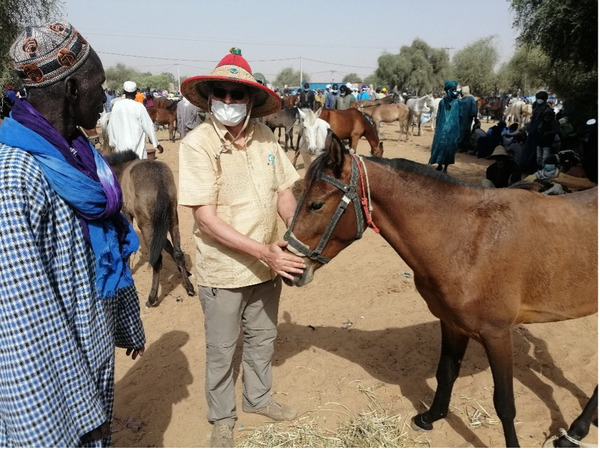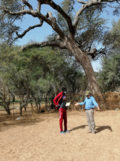1. What is your role in the project and where are you based?
Based in Switzerland (FiBL), my role as Sustain Sahel's Work Package 2 co-leader is to assure that the social and cultural dimensions of the project are taken into account. The researchers shall first listen to the population and particularly the local farming communities – agriculturalists, herders, men and women - to understand the context and their existing culture - and only then turn to designing locally embedded experiments, which are both economically promising for them and also resilient and sustainable for the environment.
2. What are you working on right now?
I’m in the middle of a key piece of work: establishing the key profiles of the project areas with the project’s interdisciplinary national teams. Each of the descriptions of the seven areas in which we will be working will include fact-based information on what the population wants, where the potential and challenges are and with whom we should work for the next four years and more. To help us produce these detailed descriptions, we are using ‘PRAs’ - participatory rural appraisals - as a methodological toolbox.
3. What are the opportunities for the Sustain Sahel project and you, as you see them?
We have plenty of opportunities to motivate, to learn from colleagues but also from people in the villages and towns and to work on something new and exciting, using various technologies, approaches, theories as well as just common sense. It’s about building concrete places of sustainability and resilience but also learning from the old and fascinating cultures of the Sahel.
4. Are there any challenges you foresee?
The main challenge is to bring together over 100 members of the project - very different people with various backgrounds and motivations - joining us all together to create a common thing - a better place to live - for the people of the Sahel as well as for us in Europe and the rest of the world. The Sahel is one of the most forgotten, war battered and abandoned places. The people of the Sahel region ask for more fairness, solidarity, and respect.
Photos from Gian Nicolay.
Interview by Marie Saville.




 tap and then scroll down to the Add to Home Screen command.
tap and then scroll down to the Add to Home Screen command.